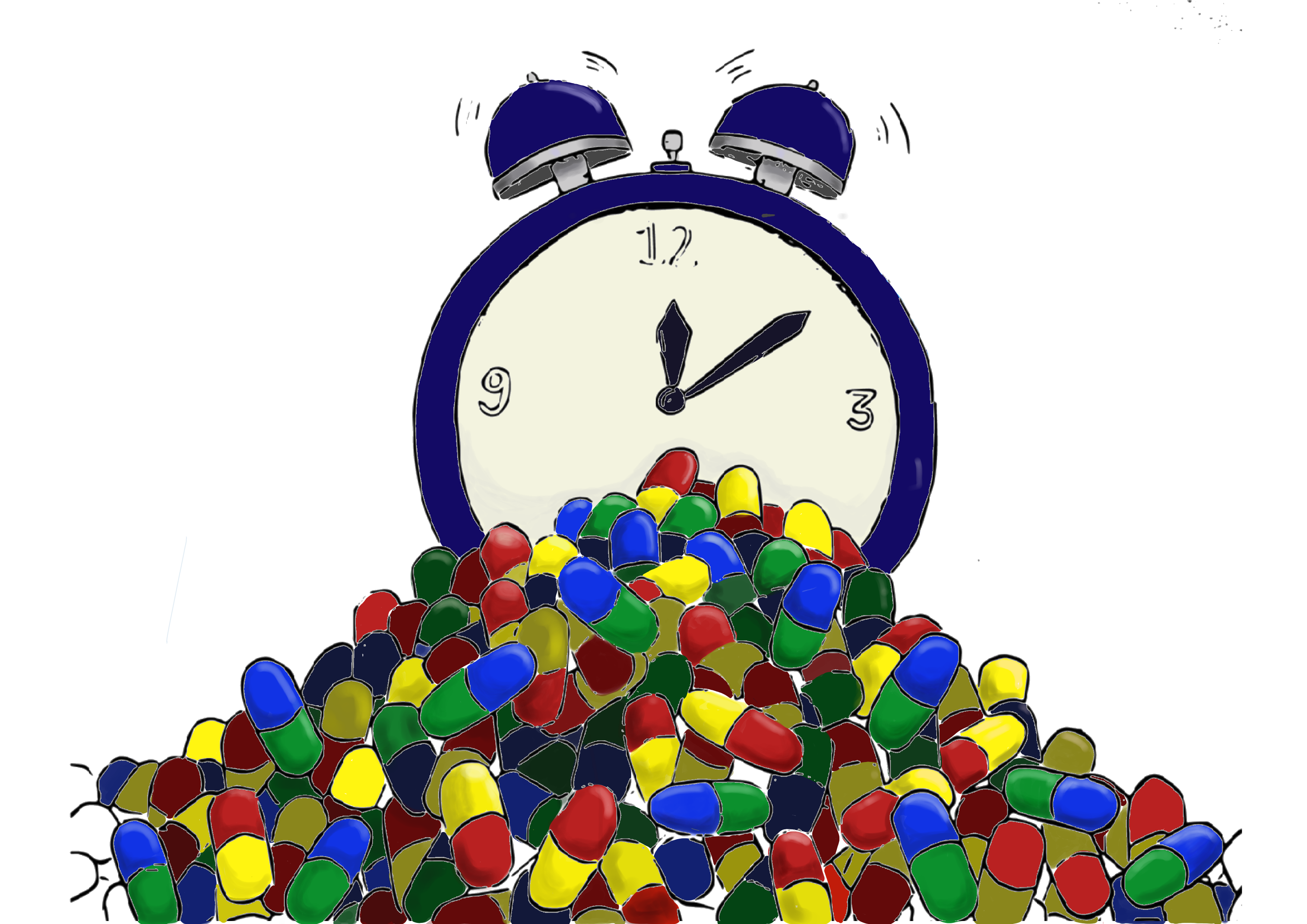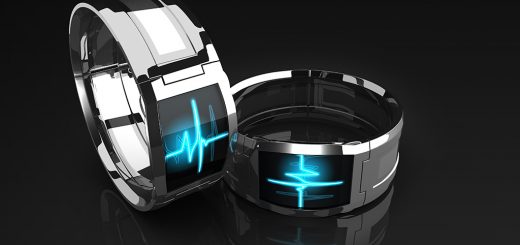Digital Pills: Big Data or Big Brother?

There’s something spooky about a tablet that knows it’s been swallowed. However, last month the FDA approved just that 1. The new pill in question, Abilify MyCite, has a tiny sensor inside that can digitally track whether or not it has been ingested, transmitting this message to a patch worn by the patient. From this, it can be connected to an app which monitors drug use. While this sounds like something straight out of ‘Black Mirror’, there is some logic behind the approval, and that’s drug adherence.
Adherence, or taking your medication as prescribed, is something people are not always good at. In fact, a report by the World Health Organisation found that the average person only took half of their prescribed drugs for chronic diseases2. Reasons for this are pretty broad: you might have a complicated regimen that is hard to stick to – if you’ve ever had antibiotics that need to be taken ‘four times a day, at least one hour after and two hours before eating’ then you know what I mean; if you live in a country where you don’t have access to universal free healthcare then you might not be in a financial position to collect meds as often as you should; or you might suffer from side-effects – even mild side-effects can be a burden so you might skip doses in the hopes you’ll reduce them; you might not feel ill. That one sounds a little paradoxical – why take drugs if you’re not ill? If you have high blood pressure or high cholesterol this would normally be picked up in clinical tests and drugs would be prescribed to reduce your risk of having a heart attack or stroke, but it’s not something that you can feel or will be aware of everyday. These are just some of the reasons that people can’t or won’t take their medication as prescribed, and it is by no means an exhaustive list. So how does tracking it help?
Firstly, it helps the patient. Via the app, people who take Abilify MyCite have the ability to keep tabs on their medication usage in real-time. This means when it gets to midday and you wonder ‘did I leave my hair straighteners on this morning?’ and, ‘did I take my medication?’ your app can help you with 50% of your problems. Sometimes you genuinely can’t remember. You’re human and imperfect and even the most organised among us forget things occasionally. With self-aware drugs and fancy phone apps, that could be a thing of the past.
Tracking in this way can also help doctors. When a patient insists that they’ve taken their medication and it’s simply not working, their doctor will now be able to check if they have actually stuck to their drug regimen before altering the dosage. This is really useful – people don’t lie to their doctors for malicious reasons, usually they just want to impress and earn a gold sticker. There is a phenomenon known as “white coat adherence” which is basically when people start feeling guilty in the days leading up to an appointment and begin sticking to their prescription properly. After a few days of diligently taking your drugs as prescribed, when your doctor asks how you’ve been doing with your medication you don’t feel like you’re lying when you say it’s going great. It also skews direct tests that measure the amount of a drug present in the blood or urine, as the results won’t be representative.
Increasing a dose unnecessarily can have serious disadvantages. It increases costs to the already stretched health service and, if for some reason the patient then follows their prescription more closely than previously, they could risk taking too much. This is especially pertinent in the case of drugs with a narrow therapeutic range, or more simply, drugs that have a small window between the dose needed to be effective and the dose which could lead to complications or toxicity. Warfarin, a drug used to thin the blood in patients who are at risk of a heart attack or stroke, is a good example of a drug which can cause serious complications, in this case bleeding if too much is taken.
The other group who could stand to benefit from digital pills are researchers. Adherence is a notoriously tricky thing to study. Self-reporting from patients might not be all that accurate. Not just because of the ‘impress your doctor complex’ I mentioned previously but also due to genuine human forgetfulness. A more rudimentary method of monitoring drug adherence is pill counting where people are asked to bring back any remaining drugs to their doctor to be counted. Research has found that this is hands-down the worst method of measuring adherence, due to people pill-dumping or stockpiling their meds. Removing patients from the equation, many researchers rely on databases of prescribing records to paint a picture of drug adherence. In short, researchers access records generated by the pharmacy when drugs are given to patients, and analyse repeated prescriptions overtime to model how good adherence is likely to be. For example, if you have a drug that needs to be taken once a day, and you collect 28 tablets, you should be collecting your next prescription about a month later – if patients collect their prescription outside this timeframe, it is likely their adherence is poor. There are still many flaws with this method, particularly as it’s still impossible to tell if drugs that are collected on time have been taken appropriately.
It’s safe to say that a pill that knows it’s been taken would be a big improvement. No doubt, it would produce huge amounts of data but if used well it could be really enlightening. Researchers could look at adherence in a time-sensitive way, which would be far more informative than anything available to date. It could help to identify predictors – are people less likely to take their medication if they are in a certain age group? Or if they are taking drugs for a specific illness? Or perhaps the particular drug prescribed could make a difference? If we can work out what sort of things predict adherence, we can start to tailor treatment to support individuals.
However, as with any new drug, there are issues. Abilify MyCite is a drug prescribed for schizophrenia, which is a serious psychological condition and can be associated with episodes of paranoia. The FDA guidelines do say that doctors should only use the new drug if patients are ‘willing and capable of using the app’ and that patients can block their doctor from seeing it at any time. There is a danger that patients may feel coerced into taking it, or those who refuse may become suspicious of their regular pills. If people begin to worry that they are being tracked without agreeing to it, it may lead back to square one: further non-adherence. Any of us could be nervous of the level of insight this could have into our daily routine if the data isn’t secured or used appropriately. Introducing this to patients who are more prone to episodes of paranoia could be a dangerous gamble.
As modern medicine moves toward an age of big data, the security of patient information becomes increasingly important. In the US, patients who rely on health insurance could risk having their adherence data used against them if it were accessed by insurance companies. Under the new data protection legislation, GDPR, coming into effect in the EU early next year, maintenance of this sort of data will be more stringent than ever, meaning researchers and doctors will have to take extra precautions to protect it and ensure it is used in an ethical way.
The WHO report3 suggested that improving adherence may be more important for public health than any major pharmacological breakthrough. If we already have drugs that work, then taking them properly might be a huge step towards improving health. If digital drugs can help solve that then maybe it’s worth risking a date with Big Brother.
This article was specialist edited by Derek Connor and copy edited by Kirsten Munro.
References
- https://www.fda.gov/NewsEvents/Newsroom/PressAnnouncements/ucm584933.htm
- WHO: Adherence to Long-Term Therapies: Evidence for Action. 2003
- WHO: Adherence to Long-Term Therapies: Evidence for Action. 2003










